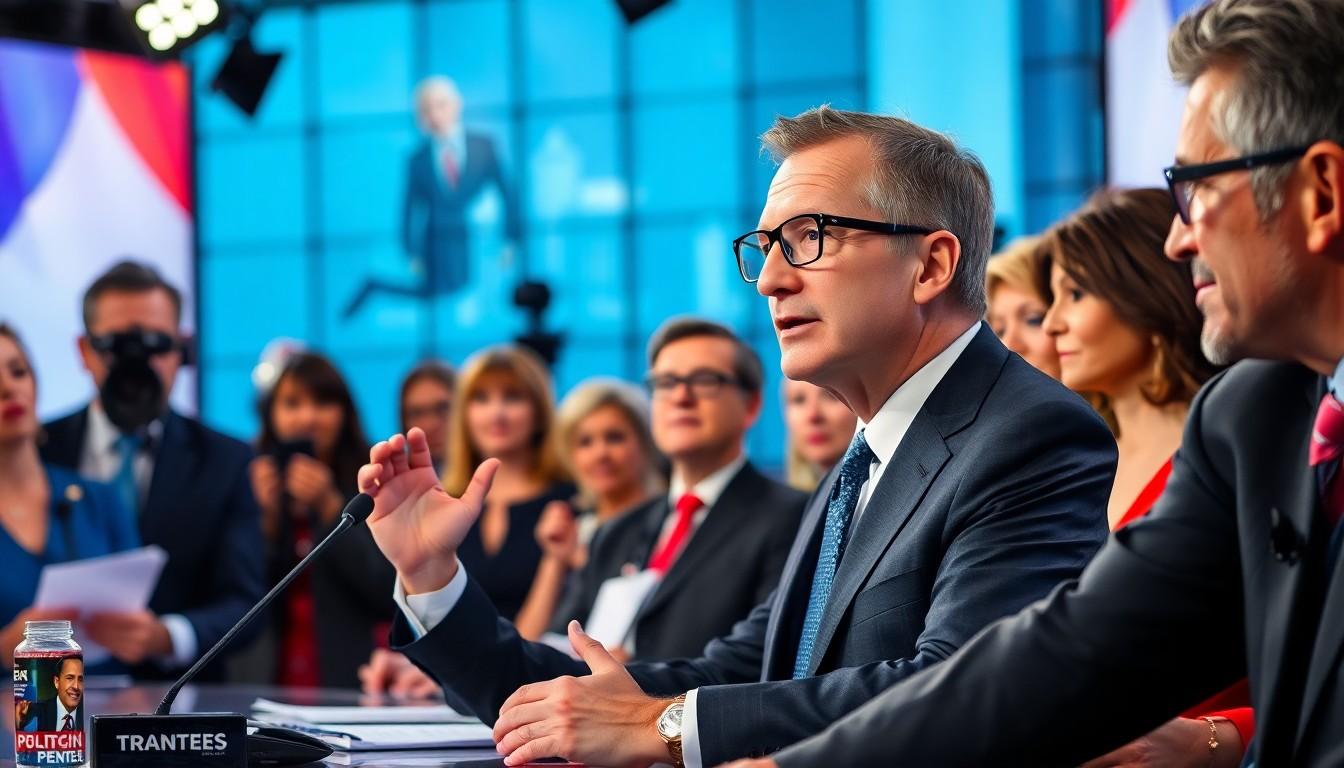The Best Fluffy Pancakes recipe you will fall in love with. Full of tips and tricks to help you make the best pancakes.

List of Political Pundits: Top Voices Shaping Today’s Political Discourse
In a world where political debates can feel like a circus, the voices of political pundits often steal the show. These savvy commentators dissect the chaos of politics, serving up insights with a side of wit. Whether they’re on TV screens or social media feeds, their opinions shape public discourse and keep the conversation lively.
Overview Of Political Pundits
Political pundits play a significant role in shaping public opinions and debates. These commentators analyze current events and political issues, offering insights that often resonate with audiences. Their experience aids in creating a narrative that engages viewers across various platforms.
Television serves as a prominent stage for these figures, with many political pundits appearing on news channels to share their views. Social media has also transformed how they interact with the public, allowing for real-time discussions and broader engagement. Commentators often utilize humor to attract attention, making complex topics more digestible.
Many pundits possess backgrounds in politics, journalism, or academia, strengthening their credibility. They analyze election strategies, party platforms, and policy impacts, contributing to a more informed electorate. By providing context and perspective, political pundits enhance the overall understanding of political events.
Examples of notable political pundits include Rachel Maddow, known for her detailed analysis on MSNBC. Additionally, David Brooks, a conservative voice on PBS and The New York Times, offers commentary from a different angle. Each pundit brings a unique perspective, enriching public dialogue.
Political commentary often elicits passionate responses, reflecting the polarized nature of contemporary politics. As influencers, these individuals contribute to the larger conversation surrounding governance and citizen engagement. In this increasingly partisan environment, the role of political pundits remains more relevant than ever.
Categories Of Political Pundits

Political pundits come in various forms, each contributing uniquely to public discourse. Understanding these categories helps navigate the diverse landscape of political commentary.
Print Media Pundits
Print media pundits often write columns for newspapers and magazines. These commentators provide in-depth analysis of political events and trends. They emphasize research-driven insights and contextual relevance. For instance, commentators like George Will and Thomas Friedman bring years of experience to their written work. Readers benefit from their expertise as they tackle complex political issues. Articles often prompt readers to reflect on policies and their implications on society.
Broadcast Media Pundits
Broadcast media pundits typically appear on television networks, engaging audiences through visual storytelling. Personalities like Rachel Maddow and Sean Hannity shape narratives around current events. They possess distinct styles, influencing how information is presented. Commentary on cable news channels allows for immediate reactions to unfolding events. Discussions often blend analysis with opinion, catering to viewers seeking both information and perspective. Pundits in this category play a significant role in framing political narratives.
Online Pundits
Online pundits utilize digital platforms to share their insights, reaching wider audiences. Social media channels like Twitter and blogs enable real-time engagement and discussions. Figures such as Ben Shapiro and Anna Kasparian thrive in this space, offering diverse viewpoints. They often create content that resonates with younger audiences. Multimedia elements, including podcasts and videos, enhance their commentary. Online platforms allow for rapid dissemination of ideas and facilitate discussions among users, shaping contemporary political conversations.
Influential Political Pundits
Political pundits shape public discourse through their commentary, offering unique insights across various platforms.
Key Figures In Leftist Media
Rachel Maddow stands out as a prominent leftist voice on MSNBC, known for her investigative style and detailed analysis. She dives deeply into current events, often linking them to broader historical contexts. Jonathan Chait, a writer for New York Magazine, provides critical perspectives on political ideologies and policies. His work challenges prevailing narratives and encourages nuanced discussions. Krystal Ball, co-host of “Breaking Points,” emphasizes grassroots issues while connecting with younger audiences. Many leftist pundits leverage social media to engage in real-time conversations, amplifying their reach and influence.
Key Figures In Right-wing Media
Tucker Carlson represents a leading figure in right-wing commentary on Fox News, known for his provocative takes on various issues. He often combines storytelling with political analysis, appealing to a wide conservative audience. Sean Hannity, another major voice at Fox, focuses on high-profile interviews and opinionated discussions that resonate with his followers. Ben Shapiro reaches younger conservatives through his digital platforms, using rapid-fire rhetoric to dissect social and political topics. Each of these pundits contributes to shaping conservative viewpoints in the media landscape.
Criteria For Evaluating Pundits
Evaluating political pundits involves several important criteria to ensure credibility and impact. First, one examines the pundit’s background. Experience in politics, journalism, or academia enhances authority in discussions surrounding complex issues.
Next, the quality of analysis is crucial. Pundits must provide insightful, fact-based commentary rather than mere opinion. Observing their ability to dissect current events into understandable narratives indicates their effectiveness in communication.
Impact on public discourse represents another vital criterion. Influential pundits shape opinions and stimulate debate, often engaging audiences through varied platforms. The reach of their commentary on social media also plays a significant role in evaluating their influence.
Consistency in viewpoints matters as well. Regularly presenting well-reasoned arguments builds trust and establishes a pundit’s position in the political landscape. Audiences often seek out commentators who maintain coherent narratives throughout changing political climates.
Finally, audience engagement indicates a pundit’s effectiveness. High levels of interaction across platforms signify resonating commentary that connects with viewers’ concerns. Pundits who foster dialogue often contribute significantly to civic understanding.
These criteria together create a comprehensive framework for assessing the credibility and influence of political pundits in today’s rapidly evolving media environment.
Conclusion
Political pundits have become indispensable voices in today’s political landscape. Their ability to dissect complex issues and present them in engaging formats fosters deeper public understanding. As they navigate the diverse media environment they influence opinions and stimulate discussions that shape societal views.
The variety among pundits—from print to broadcast to online—ensures a broad spectrum of perspectives. This diversity enriches public discourse and helps audiences connect with the political narratives that matter to them. Evaluating their credibility through experience and engagement allows citizens to discern the most impactful voices in the arena.
In a time of heightened polarization their role in fostering informed debate remains vital. Political pundits not only reflect the current state of affairs but also challenge audiences to think critically about governance and societal issues.
